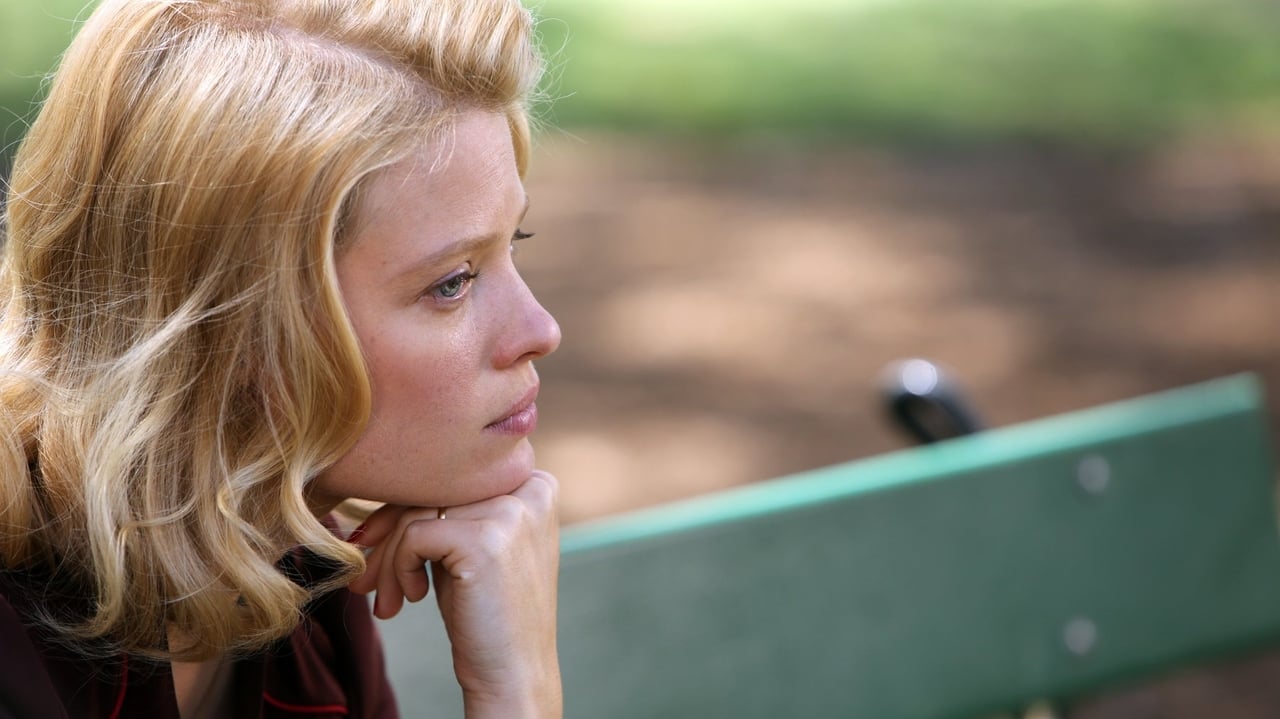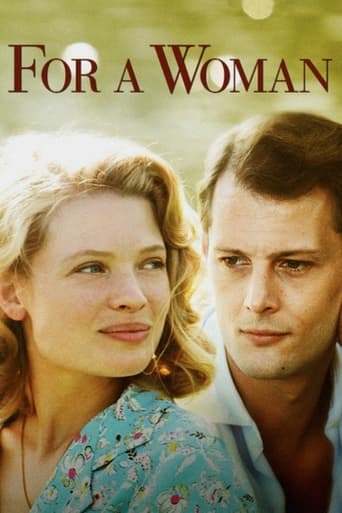Acensbart
Excellent but underrated film
Kailansorac
Clever, believable, and super fun to watch. It totally has replay value.
TrueHello
Fun premise, good actors, bad writing. This film seemed to have potential at the beginning but it quickly devolves into a trite action film. Ultimately it's very boring.
Portia Hilton
Blistering performances.
gradyharp
Author/director Diane Kurys created this important little film in 2013 and it has not had the exposure it deserves. It is a contemporary story that reflects n World War II, the Holocaust, marital infidelity, and the strength of sustaining love struggling against the vagaries of time, memory, and courage of surviving the atrocities of war.Very simply, FOR A WOMAN (Pour une femme) is the story of the marriage between Michel (Benoît Magimel) and Lena (Mélanie Thierry) as told by their daughter Anne (Sylvie Testud) with reflections on the mystery of abiding love. Michel and Lena escaped a Nazi death camp under the guise of being engaged. They married, had children, separated, and died. The time frame is between 1947, shortly into the marriage, and the 1980s, when the mother has died and the father is ill. Anne, the younger of the couple's two daughters, is a filmmaker going through her mother's mementos and reconstructing the events of the early marriage. During the period in 1947, the husband's brother Jean (Nicolas Duvauchelle) reappears. Thought to have been killed in the war, his reappearance creates many questions and triggers stresses in the marriage - among which is Jean's alliance with an anti-Nazi group (with Sacha - Clément Sibony) and the effects that has on his relationship with Lena.The acting is outstanding; the messages about the Jewish/Nazi conflict, and the ability of love to survive almost every obstacle are important and well portrayed. Recommended. In French with English subtitles.
MartinHafer
For me, "For a Woman" wasn't a particularly satisfying movie, though I'll admit that it's well acted and well made. Why wasn't I a fan of this French film? Well, it's hardly romantic and the story one I didn't particularly enjoy.When the film begins, two grown daughters are going through their dead mother's belongings. In the process, they find intimate items of hers...items which are from an affair many years ago. It seems that Lena and Michel met during the war...and Michel was responsible from saving her from a Nazi death camp. Following the war, the pair married and began a family. Shortly after this, Michel discovers that his brother survived the war and the Jean moves in with them. Eventually, you learn some of Jean's secrets and Jean learns that Lena is ready and waiting for a torrid affair with her brother-in- law.The film seems as if it's trying to be a romance but there are a couple serious problems. First, Michel is a decent guy. Sure, his politics are extreme but he loves his wife...so her cheating on him seems rather sad and sleazy to me. Second, she has sex with her brother-in-law...her brother-in-law!! This is pretty awful as well. So, despite being well made, the film came off (to me) as rather pointless and a tough sell. Additionally, everything in the film is telegraphed and not handled particularly well or with finesse.
Larry Silverstein
If you have some patience and can let this French drama unfold you may certainly find some rewards here, in what I found to be an absorbing and poignant film with interesting characters and fine acting all around. The movie was written and directed by Diane Kurys, of whom I've read often puts biographical material into her films and I got a sense that this was true here. Certain questions seem to be intentionally left unanswered, which may be OK with some viewers, but not all.The movie opens in France some four decades after the end of WW2. Two sisters Tania (Julie Ferrier) and Annie (Sylvie Testud) have come together to go through the belongings of their mother Lena, who had passed away some 3 months before. They also are coming to grips with the deteriorating health of their father Michel, who had divorced from Lena quite some time ago.However, Annie, who's a writer, becomes intrigued through old letters and photos with what might be the story of her parents lives and those around them. She begins to research and write her version of Lena and Michel's lives right after the end of the war. Michel and Lena are both superbly portrayed by Benoit Magimel and Melanie Thierry respectively.Told through flashbacks, we learn Michel saved Lena's life when they were in a French internment camp for Jews during the war. Later, after the war, they married in Lyon and soon thereafter had their eldest daughter Tania.Michel was a devoted member of the Communist Party while Lena was disinterested in politics. Things would get terribly complicated with the arrival of Michel's long lost brother Jean, also ably portrayed by Nicolas Duvauchelle. Jean will turn out to be part of a network hunting down and killing Nazi officers that are trying to escape capture. Additionally, more turmoil will be added to the mix when Lena and Paul fall in love.Although all the pieces here may not fall exactly into place, I still found this drama to be engrossing and well presented, and can be recommended to those viewers who like this kind of film.
steven-leibson
We got to see this interesting French film as part of this year's Jewish Film Festival in San Jose, CA. The story's about a couple who escaped a Nazi death camp partly because of the subterfuge of being engaged. They married, had kids, separated, and died. The movie jumps between 1947, shortly into the marriage, and the decade of the 1980s, when the mother has died and the father is ill. The younger of the couple's two daughters is a filmmaker going through her mother's mementos and reconstructing the events of the early marriage. During the period in 1947, the husband's brother reappears. He was thought to have been killed in the war and his reappearance creates many questions and triggers stresses in the marriage.All of this occurs at a pace that seems like a French film, which is what it is. The movie takes plenty of time to unwind the story and it's a complex story. Things are not what they seem, people change. In the end, most things are resolved.I really like this film as a way of tapping into a very personal French perspective on World War II, Nazis, and the Holocaust. It's a rich story, well told.

